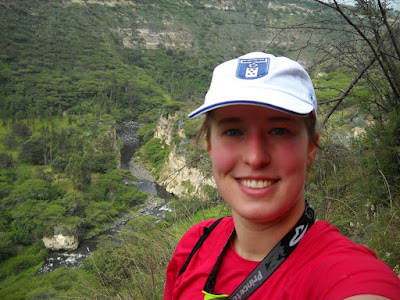In youth group on Saturday, the pastor read from Ecclesiastes 3 where it says that, "There is a time for everything, and a season for every activity under the heavens." (NIV) In the most common Spanish version of the text (Reina-Valera), the language talks about a "time" and an "hour" with no reference to seasons. As I reflected on the difference, it made sense that in my native language and my home state, seasons would have much more significance than in a city like Quito where the weather could be described as a perpetual spring (or autumn).
Having seasons--for planting, for growing, for harvesting, and for resting--helps me understand at a deeper level the importance of doing everything in its correct season. At a subconscious level, I mark the advance of time with the changing of the seasons. In school, the coming of spring meant searching for a summer job and finishing up the school year. The first snow fall signaled that Christmas was right around the corner, with 1st semester exams, the holiday season, and all the festivities at the end of the year. Here in the perpetual spring of Quito (with 3 seasons sometimes packed into one day), that urgency that comes when one knows that the world is changing and one must prepare for the change...it just doesn't exist. I often found myself returning home in a t-shirt in January asking myself whether it was September or March, only to realize that it was really the dead of winter in my home state. Thus, it is the date--the change from February to March--that makes me look at my goals and accomplishments and plan for the next 31 days. And at a different level, I continue to look to Michigan, checking the weather and looking at pictures from the recent ice storm, to remember the change of seasons and the fact that there is "a time for everything, and a season for every activity under the heavens...
And if I were in Michigan, by the way, I would have had a snow/ice day or two. So for those who are wishing the snow would end, remember that there is a time for everything, that spring will come, and try to enjoy the winter (whatever it may entail) while it lasts.
For the fun of it, here are some pictures (compliments of my padres) of what I would have seen in Michigan last week...
 |
| The beauty of an ice storm |
 |
| up to an inch of ice covering some surfaces |
 |
| With the beauty comes destruction...lots of broken branches (and downed power lines) |
 |
| Evergreens laden with the weight of the ice |
























